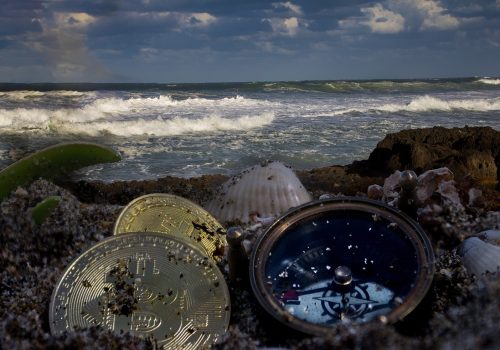In this Article
In this article, Max Frilot outlines crypto regulation in offshore jurisdictions. Specifically, in the Seychelles, the British Virgin Islands (BVI), and the Cayman Islands.
Regulation in offshore jurisdictions
Crypto Regulation in Offshore Jurisdictions
As the digital asset landscape keeps evolving, the regulatory terrain in offshore jurisdictions holds substantial significance for the crypto industry. To establish comprehensive frameworks governing cryptocurrencies, countries such as the Seychelles, BVI, and the Cayman Islands, have all embarked on distinct regulatory paths.

The Seychelles
Crypto Regulation in Offshore Jurisdictions
Amidst its promising stage of crypto regulation, the Seychelles are actively shaping their legal infrastructure to encompass crypto-related ventures. The introduction of the Seychelles’ Crypto Licence by the Financial Services Authority (FSA) marks a pivotal step. Why? Well, this licence enables crypto firms to operate within the country, given that they meet the specified requisites.
Notably, adherence to Anti-Money Laundering (AML) and Combating the Financing of Terrorism (CFT) regulations, coupled with robust transaction monitoring systems, forms the bedrock of obtaining the Seychelles’ Crypto Licence. Additionally, these entities must maintain a physical presence within the Seychelles’ borders, ensuring compliance with stringent technical security standards, and holding adequate insurance coverage.
Furthermore, the requirement to register as a Virtual Asset Service Provider (VASP) underlines the Seychelles’ commitment to align itself with established AML/CFT guidelines outlined by the Financial Action Task Force (FATF). Due to these stringent regulations, various crypto exchanges domiciled in Seychelles are realigning their operations to conform to these new standards.
However, it’s crucial to note that while the use of cryptocurrencies is permissible in the Seychelles, they aren’t recognised as legal tender by the central bank. Individuals engaging in crypto trading through Seychelles-based entities do so at their own risk. Taxation on crypto transactions remains in flux, subject to potential changes reflecting the evolving global stance on digital assets.
British Virgin Islands (BVI)
Crypto Regulation in Offshore Jurisdictions
Effective from February 1st, 2023, the VASP Act in BVI necessitates registration for entities intending to offer virtual asset services or act as VASPs within or from BVI. While existing VASPs were granted a grace period until July 31st, 2023, to submit their applications, new entities must register before initiating any activities specified under the VASP Act.
Registration as a VASP requires a meticulous application process, involving submission of a comprehensive business plan, details of key personnel, compliance frameworks, and the requisite application fee. Once approved by the Commission, a registered VASP receives a certificate and may be subject to certain conditions, including acquiring professional indemnity insurance.
The VASP Act outlines a VASP as an entity engaged in specific virtual asset-related activities for or on behalf of others. Notably, engaging in virtual asset services involves activities – such as an exchange between virtual assets and fiat currencies, custody services, and financial services related to virtual asset offerings amongst others. However, the determination of whether an entity falls under the VASP Act purview depends on various factors, including the nature of assets involved.
Additionally, while the Act doesn’t explicitly target cryptocurrencies, entities operating in the cryptocurrency, blockchain, or Web3 spheres within BVI may still be subject to existing regulatory frameworks governing business activities, such as the BVI Business Companies Act, Securities Investment Business Act (SIBA), and AML regulations amongst others.

Cayman Islands
Crypto Regulation in Offshore Jurisdictions
Likewise, the Cayman Islands initiated the VASP Act to regulate virtual asset services. The Act in May 2020. Introduced in phases, it emphasises AML regulations in its initial phase, with subsequent phases anticipated to cover licensing and other related aspects. While the Act isn’t fully in force at present, it underlines the legitimacy of digital assets and regulates businesses offering virtual asset services.
Under the VASP Act in the Cayman Islands, entities providing virtual asset services as a business are required to be licensed, registered with CIMA, obtain waivers, or hold sandbox licences. Similar to BVI, this act sets out specific activities constituting virtual asset services, including exchanges, transfers, custody services, and participation in financial services related to virtual asset issuance or sales.
Moreover, the Act introduces sandbox licences for innovative fintech services, providing flexibility for regulatory assessment and adaptation over a one-year period. It emphasizes beneficial owner approval, limitations on ownership interests, and voting rights in VASPs, while also potentially subjecting entities to other existing regulatory regimes, including SIBA and AML regulations.
Navigating offshore jurisdictions: How can we help?
The process of business incorporation and obtaining offshore licences in the Seychelles, the Cayman Islands, and the British Virgin Islands can be easily streamlined. We offer comprehensive assistance, including company incorporations, licensing, and legal opinions to assess licensable activities, ensuring compliance within these evolving regulatory landscapes. With a focus on facilitating seamless incorporation and regulatory adherence, we stand ready to assist businesses navigating the complexities of the crypto industry in these offshore jurisdictions.
Get in touch with us for specialised assistance!
More about MK Fintech Partners Ltd.
Michael Kyprianou Fintech Partners Ltd. is a Maltese company providing services in the FinTech sector. It comprises a team of dedicated experts who provide services such as Legal Advisory, Crypto Licensing, Token Issuers’ Licensing, Investment Services Licensing, and registrations of activities related to Fintech, Crypto, Blockchain & Data Protection, Investment Funds Services & Banking, Company Incorporations, and M&As.
MK Fintech Partners forms part of the Michael Kyprianou Group, a top tier international legal and advisory firm. It has established an enviable reputation as a broad-based legal practice over the years. Mainly by keeping at heart its principle to always exceed its clients’ expectations. MK has grown to become one of the largest law firms in Cyprus with offices in Nicosia, Limassol and Paphos. The MK Group’s international presence also includes fully-fledged offices in Greece (Athens and Thessaloniki), Malta (Birkirkara), Ukraine (Kiev), the United Arab Emirates (Dubai), United Kingdom (London), Israel (Tel Aviv), and Germany (Frankfurt).
The content of this article is valid at the date of its first publication. It intends to provide a general guide to the subject matter and does not constitute legal advice. We recommend that you seek professional advice on a specific matter before acting on any information you read. For further information, contact us at MK Fintech Partners via email at contactmkfintech@kyprianou.com or by telephone +356 2016 1010.




